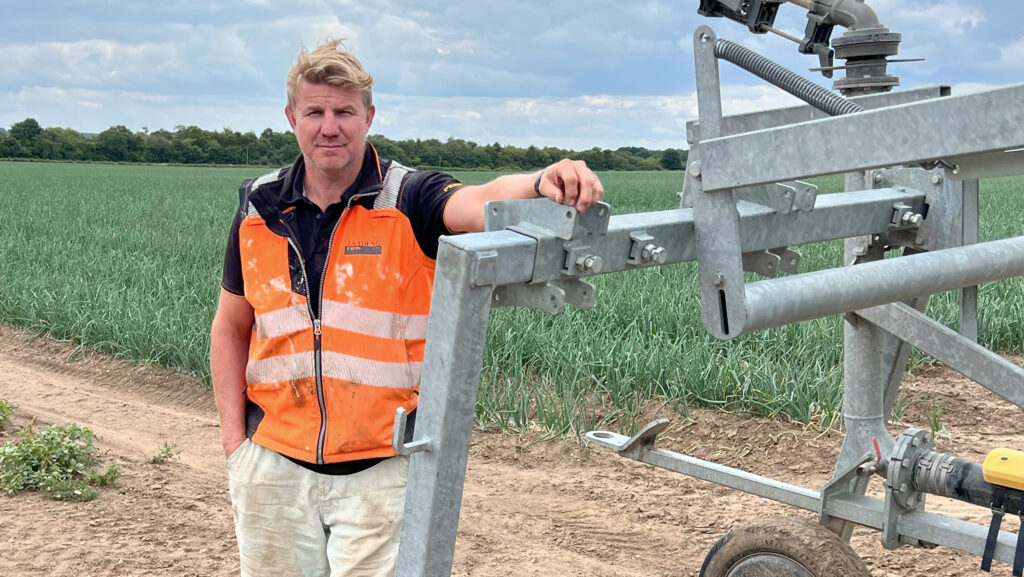Complete water abstraction ban hits grower with no warning
 Norfolk grower Tim Young © Tim Young
Norfolk grower Tim Young © Tim Young A Norfolk grower has voiced deep frustration after being informed suddenly of a summer water abstraction ban imposed by the Environment Agency (EA), with no prior warning.
The ban, effective from 3 July, affects about 240 growers in the Ely Ouse catchment and threatens significant crop losses amid ongoing drought conditions.
The EA’s letter, titled ‘Enforcement Denver Cessation Condition’, explains that earlier voluntary restrictions failed to maintain sufficient river flows at Denver sluices.
See also: Environment Agency launches guidance to support farm inspections
Consequently, no abstraction is now permitted from the Ely Ouse River and Cut-Off Channel until further notice, with daily reviews promised.
No warning
“I thought the EA would reduce abstraction to four nights a week,” said Norfolk grower Tim Young, who farms 182ha at Grange Farm near Thetford.
“It was a shock to have a complete ban, especially with no warning.
“Normally, the EA works with farmers and the NFU to give some heads-up. This came out of the blue.”
Mr Young grows onions, sugar beet, wheat, and rye, but is particularly concerned about his onion crop, which depends heavily on irrigation to prevent fusarium disease.
“My agronomist is suggesting a 25% yield reduction. I stand in front of what’s probably the best crop I’ve grown, and to know it might just break even is devastating.
“Without enough moisture, fusarium can take hold either in the field or in storage – I don’t want stressed crops.”
The farm has faced restrictions since 1 April, limited to 900cu m of water per day, down from 1,600cu m, Mr Young said.
“We managed by spreading abstraction across more days, but now with a complete ban, the risk is very real.”
Water infrastructure
This is the second time in five years that such a ban has been imposed in the Ely Ouse catchment, highlighting the need for long-term investment in water infrastructure.
“Until now, we relied on summer abstraction and hadn’t considered reservoirs,” said the farmer
“If the government is serious about food security, reservoirs need to be built, but they cost around £500,000, which is beyond many growers.”
NFU vice-president Rachel Hallos said farmers need better tools to cope with increasingly extreme weather.
She called for long-term investment in water resilience, including rainwater harvesting, and more flexible abstraction rules to help maintain food production.
“To support a secure and sustainable food supply, it’s essential that farmers and growers have the right tools to manage the weather extremes we are seeing more often,” she said.
EA response
The EA confirmed flows at Denver remain critically low, currently about 50 litres per second – well below the 1,300 litres per second threshold required to permit abstraction.
Local experts believe cessation notices are unlikely to be lifted soon.
An agency spokesperson said: “Our water resources are under growing pressure from climate change and population growth.
“As well as working with farmers, we have been urging water companies to take action and for the public to limit their usage to reduce demand.
“We have also been supporting farmers to manage water supply for their crops this summer following England’s driest spring since 1893.”
